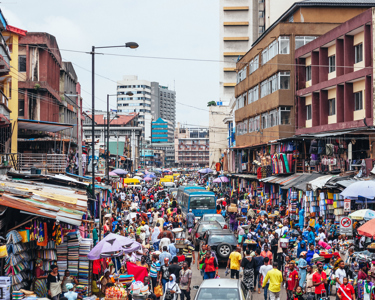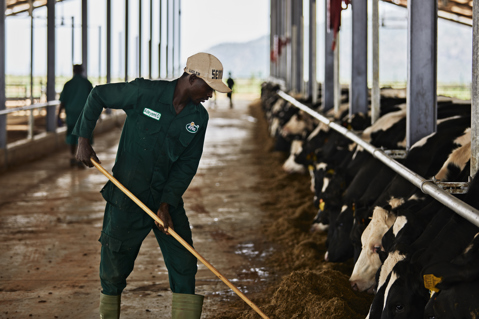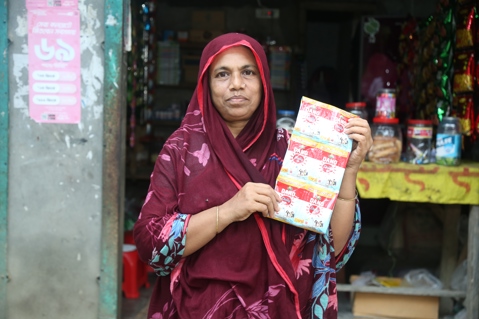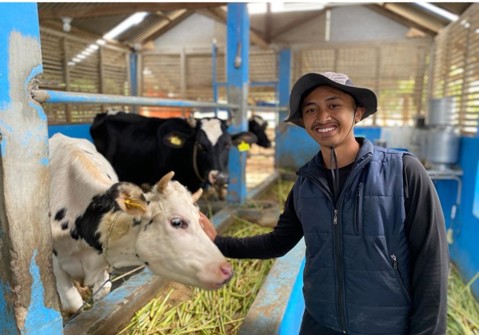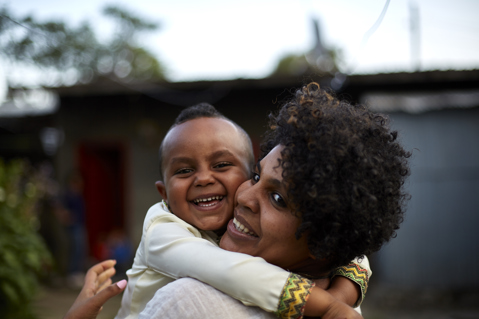Nigeria is among the fastest growing nations in the world. Its population is set to reach close to 400 million people by 2050 and there is a fast growing consumer demand for affordable dairy nutrition in the country. The Nigerian dairy sector is, however, currently only able to supply around 40 per cent of the country’s demand for dairy products, a gap that is expected to grow in line with the growth of its population. Our aim is to support the country’s own dairy industry to improve and grow.
Our farmer owners are spread across seven European countries, but the only Arla-owned farm outside of Europe is in Kaduna State in Nigeria. Our state-of-the-art farm, which was officially opened in 2023, serves as both a fully functioning farm with more than 200 dairy cows and a center for both inspiration and training for local dairy farmers. The aim is to share our expertise in improving milk yield and quality, animal welfare, farm profitability and sustainable farming practices.
The farm is one of three pillars in Arla’s commitment to the development of the dairy sector in Nigeria and it both builds on top of and taps into the targets of the other two. The first was The Milky Way Partnership, a public-private partnership with funding from DANIDA. In 2023, the project was succeeded by the Partnership for Green and Productive Dairy in Nigeria. The second pillar is the Damau Household Milk Farm, a public-private partnership with Kaduna state. All our projects in Nigeria share the aim of developing the dairy sector to become more productive, profitable and climate-efficient.
